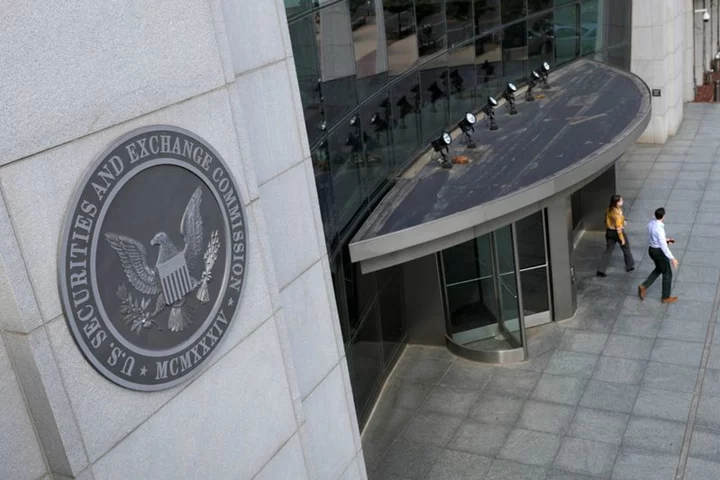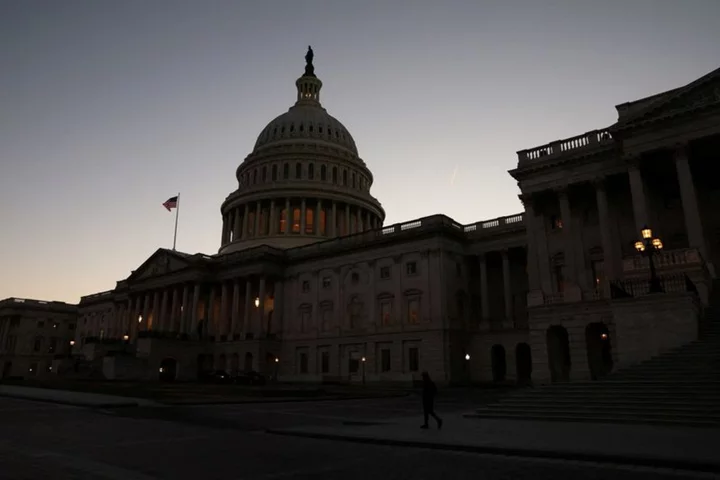The United States said Tuesday it was imposing visa sanctions on Chinese officials pursuing "forced assimilation" of children in Tibet, where UN experts say one million children have been separated from their families.
In the latest of a series of US moves on Beijing despite a resumption of high-level dialogue, Secretary of State Antony Blinken said the United States would restrict visas to Chinese officials behind the policy of state boarding schools.
"These coercive policies seek to eliminate Tibet's distinct linguistic, cultural and religious traditions among younger generations of Tibetans," Blinken said in a statement.
"We urge PRC authorities to end the coercion of Tibetan children into government-run boarding schools and to cease repressive assimilation policies, both in Tibet and throughout other parts of the PRC," he said, referring to the People's Republic of China.
The United States since 2021 has accused China of waging genocide in another region, Xinjiang, through what US officials, rights groups and witnesses say is a vast network of forced labor camps. China denies the charge.
A State Department spokesperson said the new restrictions would apply to current and former officials involved in education policy in Tibet but did not give further details, citing US confidentiality laws on visa records.
The United States separately imposed sanctions in December on two top-ranking Chinese officials, Wu Yingjie and Zhang Hongbo, over what Washington said were widespread human rights violations in Tibet.
- China denounces 'smears' -
China called the US-backed allegations "smears" that "seriously undermine China-US relations."
"As a common international practice, boarding schools in China are set up according to the needs of local students," said Liu Pengyu, spokesman for the Chinese embassy in Washington.
"Boarding schools have gradually developed into one of the important modes of running schools in China's ethnic minority areas, and the centralized way of running schools effectively solves the problem of ethnic minority students' difficulty in attending school at a distance where the local people live scattered," he said.
But Blinken in his statement cited a finding given in February by three UN experts who said that around one million Tibetan children have been sent into boarding schools, often by force.
The program appears aimed at unwillingly integrating Tibetans into China's majority Han culture, with compulsory education in Mandarin and no instruction culturally relevant to the Buddhist-majority Himalayan region, the special rapporteurs said.
A separate report this year from UN experts said that hundreds of thousands of Tibetans have also been forced out of traditional rural life into low-skill "vocational training" as a pretext to undermine their identity.
The International Campaign for Tibet, a pressure group close to the region's spiritual leader the Dalai Lama, applauded Blinken's action against the "unconscionable" separation of children.
"As the Dalai Lama often says, Tibetan culture, based on peace and compassion, has value to offer to the entire world," said the group's president, Tencho Gyatso.
"This boarding school program targets the most vulnerable and impressionable minds and is aimed at converting Tibetans into Chinese, cementing the Chinese government's control over Tibet and annihilating the Tibetan culture and way of life," she said.
Tibet has alternated over the centuries between independence and control by China, which says it "peacefully liberated" the rugged plateau in 1951 and brought infrastructure and education to the previously underdeveloped region.
The Dalai Lama, who fled into exile in India in 1959, has won a global following through his spiritual teachings, raising awareness on Tibet.
But the charismatic monk is 88 and has slowed his travels. The Dalai Lama has said he may break Buddhist tradition and pick his own reincarnation or declare the institution over, fearing officially atheist Beijing will identify and groom a pliant successor.
sct/des









